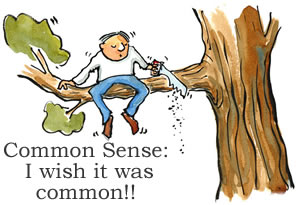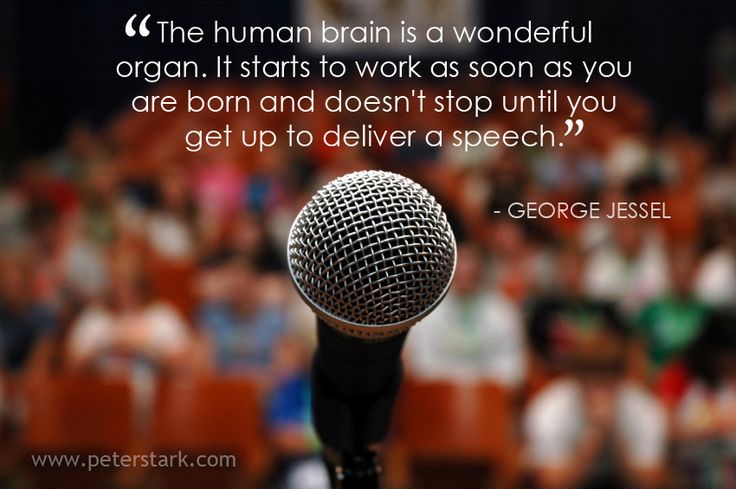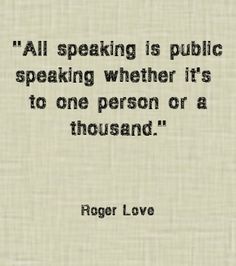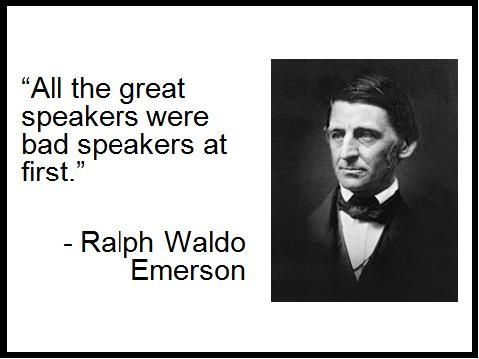
A Japanese proverb advocates that ‘Seven Times You Fall Get up Eight’. That is resilience. You don’t ever give up. In competitive life, today, setbacks cannot be avoided. A rubber ball when thrown to the ground, bounces back. But you have to bounce back even higher knowing that repeated falls are inevitable.
Resilience gives you courage not to abort the journey because of problems in the way. Life’s journey in variably has many impediments. Often times these are unexpected ones. Everyday must brings a new beginning. It’s like writing on a clean slate about life. Experience is said to be a unique teacher. You fall, you get up, you are hurt, and yet again you fall but you keep going. Every time you fall and get up there is lesson to be learnt. Accepting this reality without being mentally disturb is resilience.
It requires trust in you to maintain this attitude. A bird sitting on a branch of tree continues to do so in spite of wind shaking the branch. The bird does not believe that the branch will not fall, but it has faith on its wings. There is no material as resilient as the human spirit. Once we realize and accept this, we are able to take control of our attitude which in turn, strengthens our confidence.
In other words, resilience is how you respond and recover from what has happened to you. Your experience will tell you that it is best not to expect that things will happen the way you want these. Efforts may not bring the result that you desired. But efforts must make our resolve even stronger. Energise you to make your will like a rock that is capable of even facing even more powerful jolts. That is resilience.
Further, challenges only make the life more interesting. Meeting the challenges makes the life more meaningful. Every day gives you an experience, a lesson for the future.
You have to be patient with yourself. Take only one step at a time Step by step you are able to climb the most steep, most difficult mountain. You must repeat to yourself that you alone have the power and responsibility to face your challenges bravely and try to come out as a winner.
Today, we must accept this new reality without being mentally hurt. A person may not be the strongest, but he/she needs to be most adaptable to change. One must always remember that the real strength of a person is known when being strong is the only choice, the only way to survive.
Author: Satish Kakri
Seven Times you Fall Get up Eight!

A Japanese proverb advocates that ‘Seven Times You Fall Get up Eight’. That is resilience. You don’t ever give up. In competitive life, today, setbacks cannot be avoided. A rubber ball when thrown to the ground, bounces back. But you have to bounce back even higher knowing that repeated falls are inevitable.
Resilience gives you courage not to abort the journey because of problems in the way. Life’s journey in variably has many impediments. Often times these are unexpected ones. Everyday must brings a new beginning. It’s like writing on a clean slate about life. Experience is said to be a unique teacher. You fall, you get up, you are hurt, and yet again you fall but you keep going. Every time you fall and get up there is lesson to learn. Accepting this reality without being mentally disturb is resilience.
It requires trust in you to maintain this positive attitude. A bird sitting on a branch of tree continues to do so in spite of wind shaking the branch. The bird does not believe that the branch will not fall, but it has faith on its wings. There is no material as resilient as the human spirit. Once we realize and accept this, we are able to take control of our attitude which in turn, strengthens our confidence.
In other words, resilience is how you respond and recover from what has happened to you. Your experience will tell you that it is best not to expect that things will happen the way you want these. Efforts may not bring the result that you desired. But efforts must make our resolve even stronger. Energize you to make your will like a rock that is capable of even facing even more powerful jolts. That is resilience.
Further, challenges only make the life more interesting. Meeting the challenges makes the life more meaningful. Every day gives you an experience, a lesson for the future.
You have to be patient with yourself. Take only one step at a time Step by step you are able to climb the most steep, most difficult mountain. You must repeat to yourself that you alone have the power and responsibility to face your challenges bravely and try to come out as a winner.
Today, we must accept this new reality without being mentally hurt. A person may not be the strongest, but he/she needs to be most adaptable to change. One must always remember that the real strength of a person is known when being strong is the only choice, the only way to survive.
6 Aspects of PowerPacked Personality

There are 6 critical aspects of personality which every individual needs to analyze and review. One may be extremely efficient in the work, highly qualified, good at application of mind and yet he/she may miss out on some crucial issues that concern life.
- Communication Skills: These skills are very important and often undermined and ignored. Speech and written communication are the vehicles of our expression. If we have great thoughts but we cannot express these effectively, the process affects our self confidence. Likewise in the negotiations even though we may be right, have all necessary information, great arguments, yet if our verbal communication skills are in any way lacking; we miss out on opportunities.
- Interpersonal Skills: Interpersonal skills refer to our ability to connect with other people. It refers to our competence to influence people around us at the work place or at home for the desired results. Intentions are indeed important. But if our communication does not reflect and establish our intention, the goodness is wasted. Associated with it is your reliability. And also, how you conduct yourself and your behavior.
- Leadership Skills: Even if you don’t have a single follower, you still are a leader. You lead yourself. That is extremely important. Like a good leader if you analyze your strengths and weaknesses, if you make best use of time, if you are self aware, and if you take care of mental or physical health, nothing will stop you from leading yourself and others very efficiently. In the present competitive environment the leadership skills have assumed even greater importance.
- Assertiveness: Assertiveness is not aggression though it is often confused with aggression. It represents your talent to be able to say ‘no’ when you want to say ‘no’. Often times it seems that because of various considerations and because of fear that we may offend others, even when we don’t want to say ‘yes’ we do so. It puts us to lot of difficulties. At other times we have to face problems with members of our family and friends. How to say ‘no’ without offending the other person is nothing short of an art. It is to be developed. It is to be continuously mastered. This art requires cordiality in your tone, coordination between the mind and the speech and active listening. The proficiency in language is also very important to create proper impression.
- Body language, Grooming and Image management: Body language may be considered as a part of your communication skills but it is also a part of your physical personality. Positive body language means that you stand comfortably on your feet. Straight but never stooping even a little or bringing out your chest. Wearing a slight smile on your face with a relaxed look of peace, would add to the physical personality. Grooming is also important. What to wear when to wear indeed makes a difference. Of late quite a bit of emphasis is also put on image management. What is image management? It is the impression which you create on people when you meet them first time. It is said that the 15 seconds make a lasting impact. It may be debatable. However image management has become an important aspect of one’s personality.
- Time Management: Last but not the least; you need to be a very efficient manager of your time. This great resource is equally distributed to all of us. Our productivity and growth depends among other things on its use. In order to check where we lose time or do not manage effectively, we must make a ‘Time Log’ for 2 to 3 days. ‘Time Log’ is a list of details of your activities routine, small or big on daily basis. You can identify then where you can save time or be more efficient. Besides, we need to focus on what we do. Prioritizing is also important. Above all, discipline must be maintained which means you do things which need to be done at a particular time even if you don’t like it.
I do not claim that the above that 6 aspects comprise the total personality. However these are the main areas which should be reviewed periodically. Life is extremely interesting when we are self aware, when we know ‘what we are’, when we realize our objectives and keep on working to achieve these bit by bit.
Thanks for reading
Humour

6 Steps to developing a good sense of humour.
Humour these days is a vanishing talent. It’s just right that everyone should like to develop a good sense of humour. Benefits are immense, some of these are listed below:
- Humour generates respect. When you say something with a good sense of humour, audience doesn’t give their casual attention but tend to listen to you wholeheartedly. Because it is interesting and it lightens their mood.
- Humour appeals to the listeners and whatever may be the subject if the same is interspersed with light hearted examples, it is appreciated. Even if the audience is not very receptive for the speech which is being made, the moment humour is introduced effectively the scene changes.
- During a speech there could be many references to obscure things. Things which can be difficult to understand. Humour makes these very simple and the complicated issues are resolved. Serious issues may sometimes be interspersed with humorous one-liners. After all we know that even Shakespeare while writing his great tragedies introduced the character known as ‘Shakespearean fool’ who provided the comic relief.
- Humour helps audience to remember the points you have made in your speech. These may be arranged in manners which depict a natural flow.
- When the tension is running high humour helps to release the tension. It changes the mood and the atmosphere and the issues can be discussed at length without heated arguments.
- Humour is also very helpful in defusing the opponent’s ammunition. But humour is not everybody’s cup of tea. People who come to the negotiating table are often induced by their strong desire to win. They expect you to be as hard heating as themselves. Humour surprises them.
- Funny though it may seem, humour motivates and it can also inspire the team members. However humour has to be used in a masterly fashion.
- Last but not the least humour is helpful in getting you the desire results. While projecting your arguments in a light hearted manner, you are able to keep your objective in view. Discussion takes place in good humour.
Therefore, we must do all we can to develop a good sense of humour. I am giving below 6 simple steps which can help you to develop sense of good humour. Often time’s people think is very difficult; they don’t even try. If the attitude is negative no doubt the problem becomes difficult. In such a situation once you fail, the negativity in your mind is reinforced. So while making efforts to develop a good sense of humour you must be prepared to deal with it as an important project. This should be pursued till completion and surprising there won’t be any end. Like any other talent humour unfolds and evolves.

The following are the six simple steps. I have enumerated these as answers to your possible expression of inability to handle humour.
Step 1. You might say that you can’t do comedy. But you can definitely do if you so desire. In any case you are not carrying out the comedy show. Just as golf is difficult humour appears to be difficult.
Step 2. You may also say that ‘you can’t tell a joke’. Such a feeling in fact lowers your self esteem. Because you find there are, within your circle, lots of people who can tell a joke effectively. You are not telling only jokes but you are using relevant joke to reinforce the points which you have propounded.
Step 3. Further, you might come with an argument that ‘you never remember jokes’. So what? You don’t practice to remember arguments in any negotiation. All that you do is to go through the points relevant to the issues which you want to resolve. Your mind works and you are able to make convincing arguments. Likewise whenever the situation demands your mind will work and put the light on the lighter site of the situation. And that is significant that you know.
Step 4. You might also say that every time you try to be funny you miserably fail. If you have failed during your earlier attempts, no one can change the history. However if you decide not to fail you won’t. The great pianist Victor Borge was once asked by an interviewer if he had played piano all his life. Quick answer was, “certainly not. I am not dead yet.”
Step 5. Humour is powerful. Electricity is also powerful and so is fire or any other source of energy. They all can do harm. Humour in speech when used to bring down the opponent can also be extremely dangerous. About the tongue, it is said that God has made it so strong that it never falls ill. And if it does, it heals itself very fast. But the wounds the tongue creates in the minds of people attacked may not heal in the lifetime. So, one has to be extremely careful in using humour.
Step 6. Lastly, one must accept that humour is not easy. It has to be developed and practiced bit by bit. You have to practice to such an extent that humour starts flowing naturally, and entertains the audience. Regarding the difficulties I might say that if you have to write 10 comic one liners; you may have to first write 200 to bring out the really 10 good ones.
Thanks for reading.
6 Reasons Why We Lose Commonsense!

Common sense has become an uncommon virtue, today. It is said that common sense is not gift any more but it is punishment! Why? Because, the person with common sense has to deal with people who are without it, mostly! Yet, for sure, in spite of talent and hard work you can hardly reach your goal without this simple precious merit.
Why has common sense become uncommon? There are many social, business and environmental reasons.
Let us try to find when` one loses commonsense.
1 When people consider that they are super intelligent, they lose perspective. Where there is no perspective, there is no commonsense. Thus, ego is the worst enemy of common sense. Application of mind is difficult. But judging is not. So people don’t try to apply mind but they choose a simpler way and they prefer not to understand, but to judge. You must be self aware and ready to learn. Knowledge is limitless but thinking that you know all shows lack of common sense.
2 When we start to explain away our obvious mistakes, the situation betrays lack of common sense. Instead of learning from the experience one tends to reinforce the mistakes. Habits die hard and commonsense also tells us so. We must learn from every mistake that we make. Mistakes are made but if the same mistake is repeated it shows our apathy towards improvement.
3 Even when religion is followed dogmatically, we lose commonsense. This does not mean that we should not respect our religion. It only means that we must not follow anything blindly. When we properly understand our religion, there will be greater respect.
4 Overpowered by the carnal desire, one loses total sense leave alone common! At times, strong desires also make you lose commonsense. Because, You do not consider repercussions of your actions.. Self awareness and you decisions to maintain your perspective will not allow such an occurrence to takeplace.
5 There is another reason- we start comparing ourselves with others. Comparison is odious. Mostly people compare their plight with those who are better off. They think why they are left behind when they are equally talented and hardworking. It is not possible to understand and assess the true reasons of a successful person. So it is best never to compare oneself with another.
6 Lastly when you try to please everyone you lose common sense. You may harm your interest inorder to please someone. You may not even realize it. Sometimes, pleasing others becomes habit that causes losses more than gains. And we know that habits tend to stay with you long enough.
So friends, whenever you find yourself in mess, just try to locate your common sense!
Thanks for reading.
Positive Attitude

What is Attitude? How can we define it? Your attitude is the way you look at thing, situations or persons. The way you perceive these, determine your attitude – positive or negative. Positive attitude will find opportunities in difficulties, facing any kind of situations with courage and a reason and ability to create good redactions even with difficult people.
Conversely, you see difficulties in opportunities, find yourself victim in challenging situation and consider certain people impossible even though they are important to you. These are symptoms of a negative attitude.
Positive attitude is nicely explained in the lines that follow:
Your mission in mind
Desire working strong
once you lose your perspective
many matters go wrong.
Meeting many people
Friends and hidden foes;
keep positive perspective,
Best way to grow.
When your mind
follows intellect,
maintaining cool
and remains kind.
Your senses
Fully controlled
by mind,
There isn’t hatred,
of any kind.
your words
do not betray your
thought,
You follow your goals,
Not applause!
When your every
moment is significant.
you don’t waste
Nor hanker for success
In demeaning haste
when you see
Deep darkness and the
Rising sun
Vicissitudes of life
Adds to your fun
When you realize you
are a man much above
the sheer beasts.
When your vision is clear
And, at human goodness,
it feasts.
When you do not remain
Of senses, a slave.
You become free,
knowing that
you are born free.
It is said that life is 20% how you make it, but 80% how you take it. So, positive attitude is not only good for your success, but also for your peace!
8 Facets of Ruinous Anger
Anger, we all know is of no avail. It serves no objective. It creates many problems, but offers no solution. Yet most of us get angry. What is Anger? And, why do we get angry? A good definition of Anger is- It is our response to anything happening which is totally against our wishes- something which is never expected.
- In fact, we get angry because of our own short comings. If we are not able to deal with someone efficiently, we get angry. If we are not able to fulfill our commitment, we get angry. If our boss gets upset; again we get angry. We also get angry because of our arrogance. Almost anything may hit our pride and the result is anger.
- Further, your junior repetitively makes a mistake, you get angry. You may even know that anger will not improve his conduct, yet, anger never abates. Your anger deteriorates his/her conduct. This makes an occasion for you to become even angrier. The victim may not show anything but will keep that in mind which is even worse.
- You boss fires you over the delay in completing something that you had committed. This results in bitterness which may graduate into hate. Instead of trying to draw a lesson, an easier solution is adopted- rage.
- The consequences of the dangerous emotion are known to all of us. If we contemplate and consider on these disastrous repercussions, will we ever do that? Perhaps yes! Bad habits die very hard.
- Buddha said that you will be punished by your anger and not the person on whom you get angry.
- Someone else said “speak when you are angry, and you will make the best speech you will ever regret”.
- Another clever man said that you should make your anger so expensive that no one can afford it; and make your happiness so cheap that people get it almost free.
- Bruce Lee said “A quick anger will make a fool of you soon enough”.
Anger ruins your chances of success. Success requires following the plan with a cool mind. It requires eye for details while doing the job which needs meticulous attention. But huff will not allow it to happen.
Above all, wrath ruins efficiency. Productivity suffers. Power of concentration is diminished. Even though you may be able to complete some tasks on time, this foolish emotion will come in between. The task gets delayed and you go into tantrums. Reputation suffers. You may have earned it bit by bit, but the blow is sudden. If you lose temper, your help to a person is erased all at once. If people consider you short tempered, they will avoid you as much as they can.
Anger spoils your gains often. You may be on the verge of receiving some benefits, gifts or gains but anger spoils it all.
Lastly, but more importantly; anger is bad for your health. It increases blood pressure which leads to hypertension. We all know that continuous hypertension eventually results in heart attacks.
So never get angry!
Thanks for reading.
5 Tenets of Appreciating Others

1. Today, I’ll talk to you about the art of appreciation. Develop the art of appreciating others. You might ask- Art of Appreciation! Where is the need?
To this I say, the need was never as important as it is today. The need to build good relations with people who are concerned, who are connected with you, is critical. In the very competitive world, your progress, even your survival needs help of others. The art of appreciation is the sharpest tool that will be very handy in building good relations. So better acquire this art sooner than later.

2. Next question that might confuse you is: what to appreciate? Well, any accomplishment, a victory, big or small, completion of an important project, qualifying an exam are- all occasions where you require to appreciation. More than that, if you have received any help that deserves appreciation. It deserves recognition and saying ‘thank you’. Thank you is also an appreciation. The person concerned will be happy. And, of course, happiness given always returns often manifold.

3. When to appreciate? As soon as you get the good news, the sooner the better. The achiever will admire your speed. Be the first one. If you get the news late don’t think “now it’s too late’. Remember better late than never! Your reward will be warmer reciprocation. More importantly, you come closer, make a greater stronger bond.

4. Where to appreciate? Anywhere you meet your friend first time after the achievement. If it is your colleagues, you may do it in the office. If you want bigger celebration say it, and do it! Share the joy.
5. How to appreciate? Well, there is the rub. Say it with most appropriate words. Never overdo it. And you need not underplay. Identify the achievement; recognize the effort that would have gone in it. And talk about it. And when you get help, it’s your greater duty to thank the person. Say thank you, warmly. Send ‘Thanks’ message. When occasion deserves, Extend an invite. Achievements may also be congratulated with flowers. Keep on fine tuning your art as the fine notes of music, and keep on enjoying the results.
Thanks
5 habits which don’t allow you gain financial freedom

Everyone wants to gain financial freedom- free from worry of providing finance resource when you stop earning. This is particularly so if you are a working professional. Today, we have examples of financial wizards who have grown to riches starting at the bottom of the ladder. But here we talk about much lesser achievement- just to gain financial freedom. So what is holding you back? There are five major reasons. These are:
- Fear
- Cynicism
- Laziness
- Poor habits
- Arrogance
1. Fear: What is fear? Why does it come? What are the problems that it may create? These are a few of many questions one may ask to understand the affliction and its implications. These may differ from person to person. But the ultimate problem the fear causes is the same. Fear doesn’t allow you to grow. In fact, it makes your life miserable.
2. The second in my list is Cynicism. A cynic is always skeptical of things other than mathematics. The doubtful nature of the cynic doesn’t allow to trust anyone. What if is the perennial problem the cynic faces? With negative, jaundiced view, a cynic becomes a pessimist. She/he is unable to see the brighter side of things. They become color blind and cannot differentiate the various colors of human life. They say that there is light at the end of the tunnel. But for the cynic the tunnel becomes endless. In these circumstances who can progress in any field. They hold back and blame everyone around for this failure.
3. The third the list is When you don’t feel like working, when your indolence doesn’t allow you to get out of the bed, you are too lazy to think solution of even a minor problem. You know what is to be done. You know how it is to be done. But your sluggishness holds you back. You tend to procrastinate. It is often observed that if you delay action, the significance of the action is lost. Who lose out? You. And why? Only because of laziness. The remedy is discipline. Discipline beats laziness. Simple definition of discipline is doing something which needs to be done even when you don’t like.
4. Next point on my list of reasons of failure is “Poor habits”. Good habits are hard to cultivate, but poor habits come uninvited. And then, like the undesirable guests, they occupy the most of your mind. What are these poor habits? You don’t live up to the need of the situation; when you remain deficient in any action that you take. You do nothing about your inadequacies. You get to know that your performance is below average, yet you do nothing about it. You accept below par action as enough. These don’t provoke you to do any better in spite of the rebuff of your superiors; lack of respect of your time and that of others is another unpardonable habit.
5. And finally, it is Arrogance. Arrogance is equal to Ego plus Ignorance. When you think you know all, you feel, that to know what you don’t know is not important, therefore, can be ignored. Arrogance doesn’t allow you to listen. God has endowed every human with two ears, but only one mouth. I would say that we should listen twice as much as we speak. But arrogance will not allow you to listen and understand others. Therefore, you don’t allow others to speak. Your high headedness breeds more enemies than friends. And you stand to lose everywhere. The aforesaid five problems need to be addressed by everyone who wants to progress.
Your success depends on the following three activities:
- Your eye on cash flow
- How you manage people
- And, how you manage your time
But the above 5 snares will not allow you to perform anyone of above three activities even satisfactorily, much less effectively.
Thanks for reading.
What makes ‘Public Speaking’ a critical skill today?

Public Speaking has always been a subject of fear. The great speakers were poor speakers at one time. It is a myth that public speaking is a God given talent. The ability has to be developed. One has to work hard. It’s always better to practice under guidance of a competent trainer.

Public speaking is no longer a necessity for only for the political leaders or motivational speakers. The competence in this talent needs to be developed by everyone who wants to progress and who wants to maintain self-esteem. The concept is now extended even to speaking one on one or to a group or to your family members. The underlying qualities required are:
- Articulation: It refers to the clarity in speech. One must be in a position to express clearly whatever is there in mind. Syllables can be pronounced correctly only with the adept use of speech organs.
- Speech Organs We have 5 speech organs. These are- jaw, tongue, teeth, lips and palate. Wherever some of these are not use adequately, clarity is compromised.
- Eye Contact The speaker has to hold the attention of the listener/listeners. This can be achieved by making an eye contact with the audience. You must connect whether you are speaking to one person or to a large audience. Maintaining an eye contact is crucial.
- Coordination Between Mind & Speech Human brain thinks 10 times faster than the speech. Coordination between the mind and speech is of prime importance. Often times the speaker is at a loss to find the right word. While speaking it causes fumbles during the speech. This happens due to inadequate coordination. It can be achieved with practice.
- No Age Bar It is a fallacy that the talent needs to be developed at an early stage. Age is no bar to develop public speaking talent. Here I would like to relate a recent case study.
One of my students (in his late 60s) said that during his life he never could speak to more than 1 person at a time. A diamond merchant by profession, he retired and handed over the business to his sons. With a desire to give back to the society, he started an NGO. Due to his contacts he was able to gather enough funds. His dedication to the cause enabled him to do good work in his village in Gujarat. Whenever a project would be completed he would face the “biggest problem in his life”. Invariably people would ask him to say few words and that was the “biggest problem”.
Because of the aforesaid compulsion, he was motivated to learn public speaking after retiring from business. A strong desire enabled him to practice hard. Subsequently he participated in various seminars and now he is an accomplished public speaker.

Life has changed. It is moving extremely fast. Snail mail has been replaced by email. Enthusiastic business leaders want things to happen ‘yesterday’. Telecom revolution and internet has changed the rules of the game so far as communication is concerned.
To be continued…..